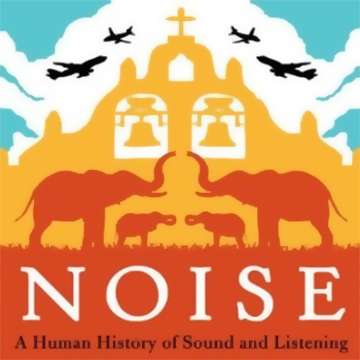Noise, Pt. 7 - Airs Aug 5th
Carnival from Noise: A Human History of Sound and Listening
Feast days in Medieval Europe were noisy affairs – the streets filled with processions, animal baiting, games and mystery plays. Professor David Hendy of the University of Sussex tells the story of a Somerset town where a ‘church ale’ got out of hand and the party went on for eight weeks. Then, as now, being raucous in the streets was a way for the dispossessed to literally make themselves heard – and revelry could easily tip into revolt.
Restraint from Noise: A Human History of Sound and Listening
The sixteenth and seventeenth centuries brought a new emphasis on self-discipline in every day life – and with it a revulsion against noise of every kind. City authorities banned singing and feasting from public squares and tore down maypoles, while town-dwellers raised petitions against noisy neighbors. Spitting, snorting and breaking wind – once part of everyday life – were now a cause for wrinkled noses and dismay.
Feast days in Medieval Europe were noisy affairs – the streets filled with processions, animal baiting, games and mystery plays. Professor David Hendy of the University of Sussex tells the story of a Somerset town where a ‘church ale’ got out of hand and the party went on for eight weeks. Then, as now, being raucous in the streets was a way for the dispossessed to literally make themselves heard – and revelry could easily tip into revolt.
Restraint from Noise: A Human History of Sound and Listening
The sixteenth and seventeenth centuries brought a new emphasis on self-discipline in every day life – and with it a revulsion against noise of every kind. City authorities banned singing and feasting from public squares and tore down maypoles, while town-dwellers raised petitions against noisy neighbors. Spitting, snorting and breaking wind – once part of everyday life – were now a cause for wrinkled noses and dismay.




Comments